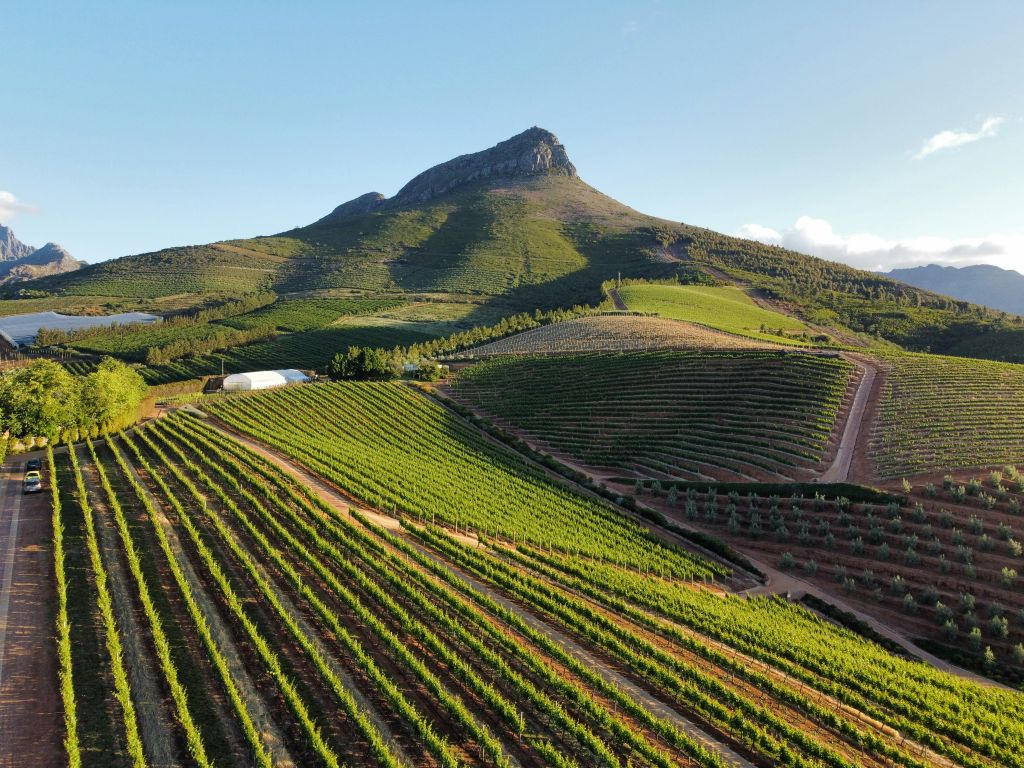The newly launched BFAP Baseline 2025 report, an agricultural outlook for 2025–2034, highlights challenges and opportunities for South Africa’s wine sector over the next decade. The country’s vineyard area has been in decline for nearly two decades, and while production volumes are expected to stabilise below historical levels, the report shows a clear path for growth – as long as the industry focuses on value over volume, market diversification, climate adaptation, and building an inclusive and skilled workforce.
South Africa Wine CEO, Rico Basson, says the findings underline the industry’s resilience and adaptability.
“We have weathered years of climate pressure, market shifts, COVID-19 alcohol bans and logistical challenges, yet our producers have continued to innovate and deliver world-class quality. There have also been significant global challenges due to tariffs, climate, and lower production and consumption levels. The BFAP outlook confirms what we already know: we must be strategic, collaborative, and proactive in determining our future,” said Basson.
“Our vineyard area has declined for 17 consecutive years, with a below-average return on investment,” continued Basson. “These numbers are a wake-up call. We cannot stand still. We must renew vineyards, embrace climate resilience, and strengthen our value chain to remain competitive.”
According to the report, global wine consumption is shifting toward quality, bulk wine is gaining structural momentum in international trade, and traditional markets like Europe are giving way to growing opportunities in Africa, Asia, and North America. Domestically, premium and ultra-premium wine segments are on the rise, alongside sparkling wine.
Based on the report’s insights, South Africa Wine identified strategic priorities to ensure the industry is well-positioned for the future:
Urgent vineyard renewal
Prioritise replanting and smart cultivar selection to halt vineyard decline, safeguard quality and yields, and capitalise on rising bulk wine and grape prices. With improved returns, the vineyard area is projected to stabilise at 84 000 ha as replacements take effect.
Climate adaptation
This involves continued investment in climate-resilient varieties, advanced water management, adaptive farming practices and decision-making tools that provide foresight.
Premiumisation vs. volume
Continue the targeted export value repositioning, a core focus of Wines of South Africa’s renewed strategy, and balance the growth in premium wines. Capitalise on the strong global demand for quality varietal bulk and wine packaged at destination to increase margins.
Market diversification
Reduce the high reliance on Europe by actively expanding in Africa, Asia, and North America, in partnership with the Departments of Trade and Industry and National Agriculture, to negotiate a more beneficial tariff and non-tariff dispensation.
Value chain efficiency
Support the forward and backwards integration by producers reintegrating beyond the farm gate, capturing higher margins, and brands that want secure access to raw material.
Domestic market strength
Leverage stable domestic consumption and growth in higher-value categories.
Strength in inclusivity
Continue the strong momentum in people development and inclusive growth, ensuring that skills, opportunities, and benefits are shared across the industry to create a more equitable and sustainable sector.
Brand, trade and tourism positioning
Strengthen South Africa’s global wine brand through coordinated marketing, advocacy, and storytelling. Harness the wine industry’s connection to South Africa’s tourism economy by creating integrated wine, food, and cultural experiences that attract local and international visitors.
Sustainable growth
Rather than chasing volumes, focus on profitability through quality, efficiency, and targeted markets.
Basson said that despite the challenges, there are bright spots in the global market.
“Bulk wine prices rose by over 8% last year, the premium and ultra-premium categories in the domestic market are growing by more than 25% over the next decade, and certain markets in Africa can double their demand for our wines. This is why our priorities focus on value over volume, new market opportunities, and the power of wine tourism to bring people and profits into our regions.”
“Future success will, however, rely on a conducive policy environment. We need to strengthen government support to boost investor confidence, cut red tape, enforce key issues like illicit trade, ensure all wine-related policies – including excise tax – are evidence-based, and recognise the sector’s rural roots, economic impact, and job creation potential,” Basson concluded.
Are you a Daily Wine News subscriber? If not, click here to join our mailing list. It’s free!


Dining and Cooking